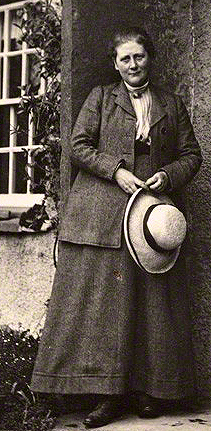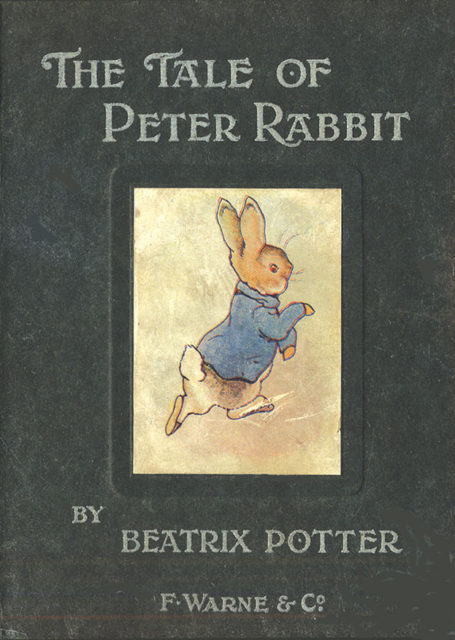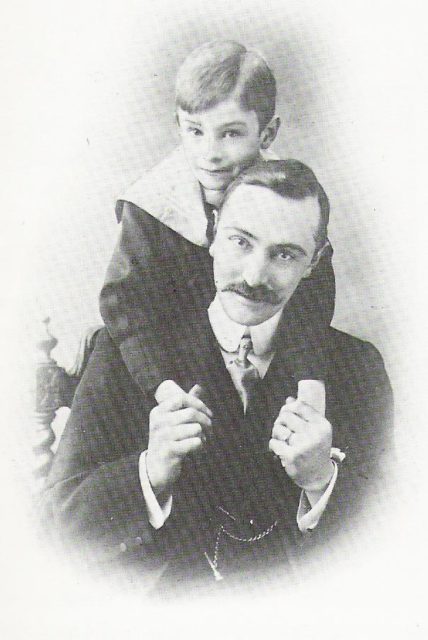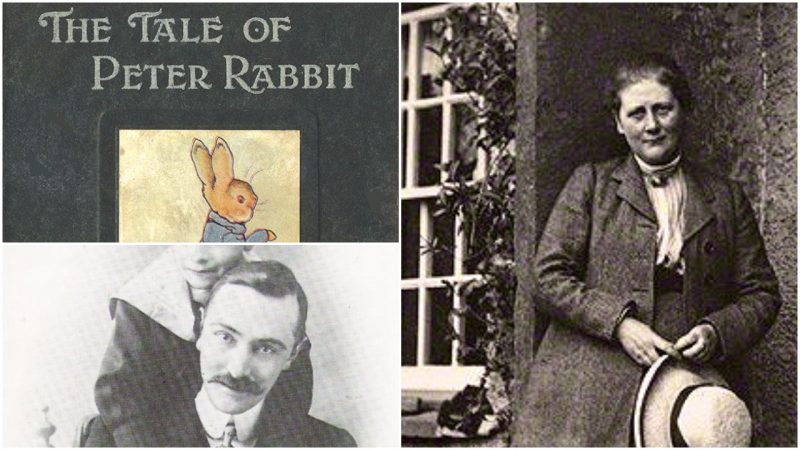Everyone knows the delightful story of Peter Rabbit, who wears a blue jacket, eats radishes, and hops around the vegetable gardens. His creator is Helen Beatrix Potter, born in 1866, an exceptional writer of children’s literature and a passionate illustrator of the characters in her stories.
But few know that her personal story descended from happiness to tragedy. The numerous unpublished letters of Beatrix, discovered by archivists, revealed that she never got over her first love, publisher Norman Warne.
Tale of Peter Rabbit was published in 1902 by Frederick Warne & Co. The older sons of Frederick didn’t imagine that the book would be a huge success, so they handed over the project to their youngest brother, Norman. Beatrix and Norman started out with a professional collaboration.

by Charles King, circa 1913
They admired each other, sharing a warm, platonic relationship filled with humor and imagination. Their strong friendship deepened into love. Norman’s niece had described their unique relation as “the strangest of courtships,” adding that “They were never alone together. When Beatrix went to the office she was always chaperoned and when she went to Warne’s household some other member of the family would always be there, too.”
Beatrix was born in an upper-class household, hence her parents were strongly against her pursuing a career as a writer in the first place, considering it “improper” as women from the upper classes at that time were not supposed to work. Norman Warne, on the other hand, came from a family in trade; he was seen as a serious threat to Potter’s family because they couldn’t imagine a son-in-law with a manufacturing background.
Beatrix knew that they would be infuriated to find out that she was in love with a man who was “an ordinary publisher,” someone who was “into trade” and nothing more. This resulted in a secret affair between her and Norman.

The lovers exchanged letters daily, and in one of those letters, Beatrix received a marriage proposal from Norman. She accepted with utmost joy, but her parents disapproved, demanding that she keep the news only in the immediate family, though she could wear the ring. In order to balance her family life, the professional challenges, and her liaison with Norman, Beatrix obeyed her parents’ will and warned Norman’s family to keep the engagement in secret.

That year, Beatrix left to spend the summer in Wales with her family. Of course, even when far away her thoughts were with Norman, so she poured them in her letters, writing him “a silly letter all about my rabbits, and the walking stick that I was going to get for him to thrash his wife with.”
Norman never read or received her letters. He died of lymphatic leukemia, just a few days after a telegram brought Beatrix the news that Norman was ill. Beatrix was heartbroken and her entire world fell apart. Warne’s family comforted her, especially Norman’s sister Millie, who Beatrix had called her “affectionate sister.” Beatrix stayed with Norman’s family for a while after the funeral, and she tended Norman’s grave.
Over the following months, her grief grew and she decided to pull away, so she bought a 17th-century house at Hill Top Farm near Sawrey in the Lake District. For the next eight years, she kept on writing while leading a rigorous life as a sheep farmer until finally, she accepted the love of another gentleman, William Heelis, with whom she shared affection.

The memory of Norman haunted her and she felt that she must justify her upcoming marriage so she wrote to Millie: “I have felt very uncomfortable and guilty when with you for some time – especially when you asked about Heelis. You would be only human if you felt a little hurt! Norman was a saint if ever man was good, I do not believe he would object, especially as it was my illness and the miserable feeling of loneliness that decided me at last. I certainly am not doing it from thoughtless light-heartedness as I am in very poor spirits about the future.”
Beatrix and William married in 1913, but it seemed her heart still belonged to Norman. The same year, she came back to London to sort some personal matters and came across some of the letters from Norman that she couldn’t read as, according to her, were “so upsetting.” Her life went on but the longing for her first love never faded away.
Beatrix Potter wrote 30 books. After a long marriage to William, she died of pneumonia at the age of 77.
